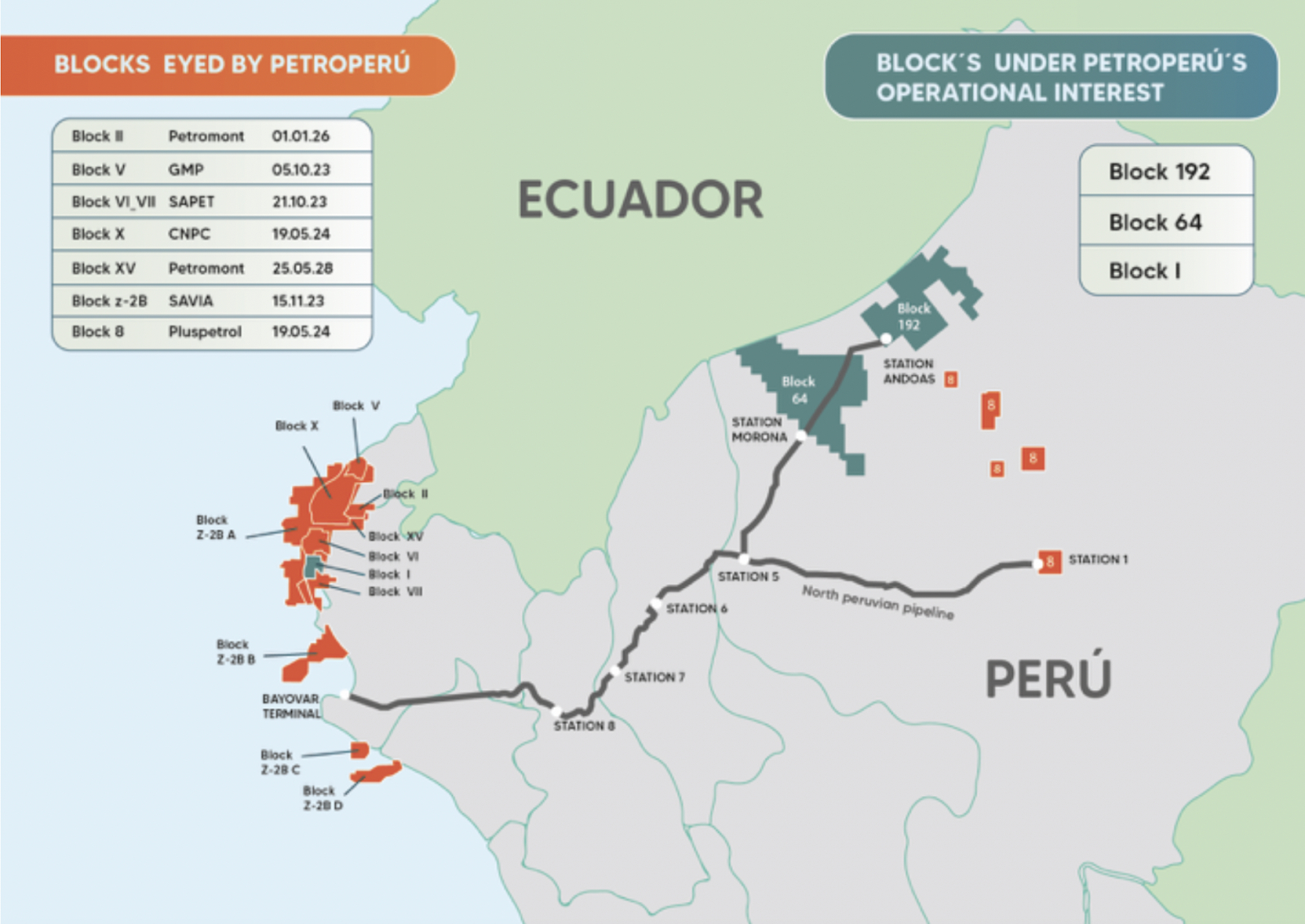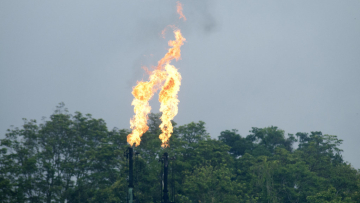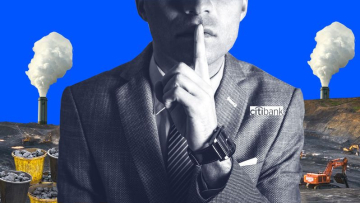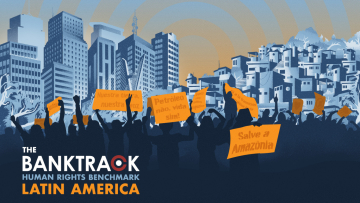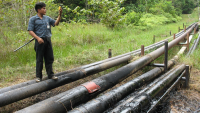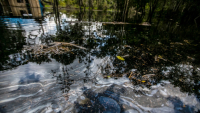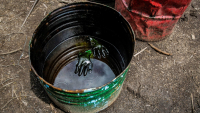
Company – On record
This profile is no longer actively maintained, with the information now possibly out of dateBankTrack
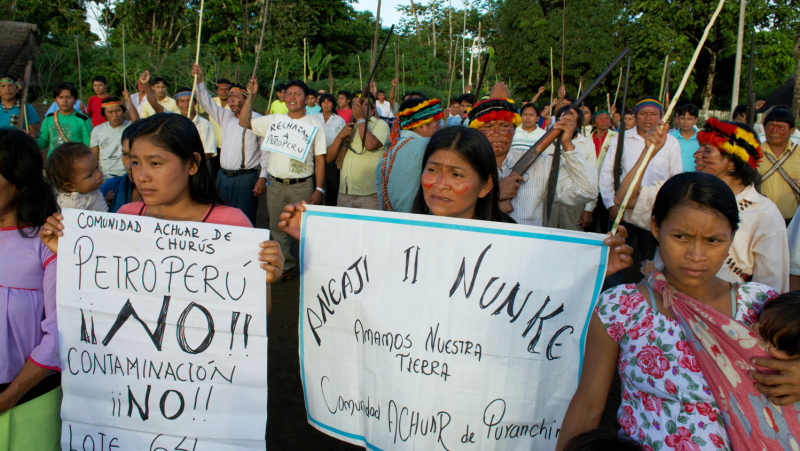
Company – On record
This profile is no longer actively maintained, with the information now possibly out of dateBankTrack
Why this profile?
As the world’s largest rainforest, the Amazon is known as the “lungs of the Earth.” However, exploitative extractive companies such as Petroperú continue to operate in the Amazon basin despite severe social and environmental consequences. Petroperú’s operations have devastating effects on biodiversity and the climate, impacting local Indigenous Peoples and their livelihoods. As a result, Petroperú faces widespread opposition from communities and civil society groups, both in Peru and abroad.
What must happen
In line with the Paris Agreement goals, banks and other financial institutions should not provide any new financing for Petroperú while it continues to seek to expand oil and gas operations. Banks should also adopt and strengthen policies to safeguard Indigenous rights, such as Free, Prior and Informed Consent (FPIC), and take steps to mitigate the serious harms that have already taken place.
| Sectors | Oil and Gas Extraction |
| Headquarters |
|
| Ownership |
Petróleos del Perú (Petroperú S.A) is a state-owned company under private law belonging to the Peruvian State since 1969. It has been listed on the Lima Stock Exchange since 2010.
|
| Subsidiaries |
|
| Website | https://www.petroperu.com.pe |
Petroperú is a state-owned company involved in the exploration, refining, and distribution of oil and gas. Its headquarters are in Lima, Peru.
Petroperú transports crude oil from the Peruvian Amazon to the coast through its North Peruvian Pipeline. It also refines and commercialises oil derivatives. This includes operating Peru's second-largest oil refinery in Talara. In 2021, the company restarted oil production at the Block I field on the North Peruvian coast. In addition, the company is seeking to exploit other blocks for oil extraction, including Block 64 and Block 192.
Impact on human rights and communities
Impacts of the North Peruvian Oil Pipeline: The longest pipeline in the country, the North Peruvian Oil Pipeline regularly leaks, causing considerable social and environmental damage by contaminating rivers and streams that Indigenous communities depend on. A 2020 report by Oxfam and Coordinadora Nacional de Derechos Humanos (CNDDHH) attributes spills to operational failures, corrosion, third party actions, and natural causes. Notable incidents include:
- 2014 (Cuninico, Loreto) – 2,500 barrels of oil spilled.
- 2016 (Morona, Loreto) – 1,444 barrels spilled.
- 2016 (Imaza, Amazonas) – 3,000 barrels spilled.
These spills severely contaminated rivers, streams, and soils in the Amazon, sparking community opposition, protests and legal action.
More recently, in October 2024, an oil spill of 6,000 liters in the Pastaza River basin devastated Quechua and Achuar communities, killing livestock and contaminating vital food and water sources. This humanitarian crisis prompted the Achuar Nations to seek precautionary measures from the Inter-American Commission on Human Rights.
Impacts in Block 64: Petroperú plans to start oil extraction and production in Block 64, located in Morona, Datem del Marañón. However, Indigenous communities, the Achuar People of the Pastaza River and the Autonomous Territorial Government of the Wampis Nation, fear the project will bring similar impacts as seen with the North Peruvian Oil Pipeline.
In September 2023, Indigenous nations of the northern Peruvian Amazon published a Unified Declaration opposing Petroperú’s expansion into Block 64 and new Blocks overlapping with ancestral lands. They declared:
"We warn any company or financial entity seeking to partner with Petroperú that they do not have our consent, and we will not allow their operations.”
They also rejected government plans for new oil exploration areas overlapping with their territories. During a 2023 presentation, Petroperú’s president announced plans to begin operations in late2026. The company is currently carrying out an Environmental Impact Assessment.
Despite strong Indigenous opposition, Petroperú continues to seek partners and financiers without having obtained Free, Prior, and Informed Consent. In December 2024, the Federation of the Achuar Nationality and the Autonomous Territorial Government of the Wampis Nation issued a joint statement opposing the project, citing threats to their ancestral lands, cultural values and fundamental rights. The Chapra Nation also released a public statement reinforcing their opposition.
Impacts in Block 192: After years of negotiations over damage compensation, impacted communities accepted new oil operations at Block 192, expecting the Peruvian State to address environmental liabilities left by the previous operators. However, remediation remains stalled as no operator has so far taken up responsibility for the costly clean-ups.
In February 2023, Petroperú and Perupetro signed a contract to restart operations, promising "sustainable development" and "respect for the Indigenous population". However, oil spills persist, and the ageing infrastructure poses risks of further damages to the ecosystems of the Amazon and the nearby Indigenous communities.
Additional Blocks: The Peruvian government plans to transfer additional oil blocks (2023–2028) to Petroperú as private concessions expire. Like Block 192, these areas face unresolved environmental liabilities, which Petroperú may have to assume. For further information, see Amazon Watch, "The Risks of Investing in Petroperu", Fall 2022.
Impacts at the Talara Refinery: In December 2024, an oil spill at the Talara Refinery contaminated over 10,000 square meters of Peru’s northern coast, leaving local fishermen in Lobitos and Cabo Blanco without their livelihoods. Local communities, fishermen, journalists and human rights organisations, condemned Petroperú's efforts to downplay the extent of the damage. In response, the government declared a 90-day environmental emergency.
Impact on climate
The oil and gas industry is a major polluter in the western Amazon. Blocks 192 and 8 in Datem del Marañón, Loreto, which Petroperú plans to operate – have a long history of contamination, with 422 spills since 1997. In the same period on the North Peruvian coast, close to the Talara Refinery, there have been 404 spills.
In addition, the operations of the old and deteriorated North Peruvian Pipeline caused more than 94 oil spills between 2001 and 2019.
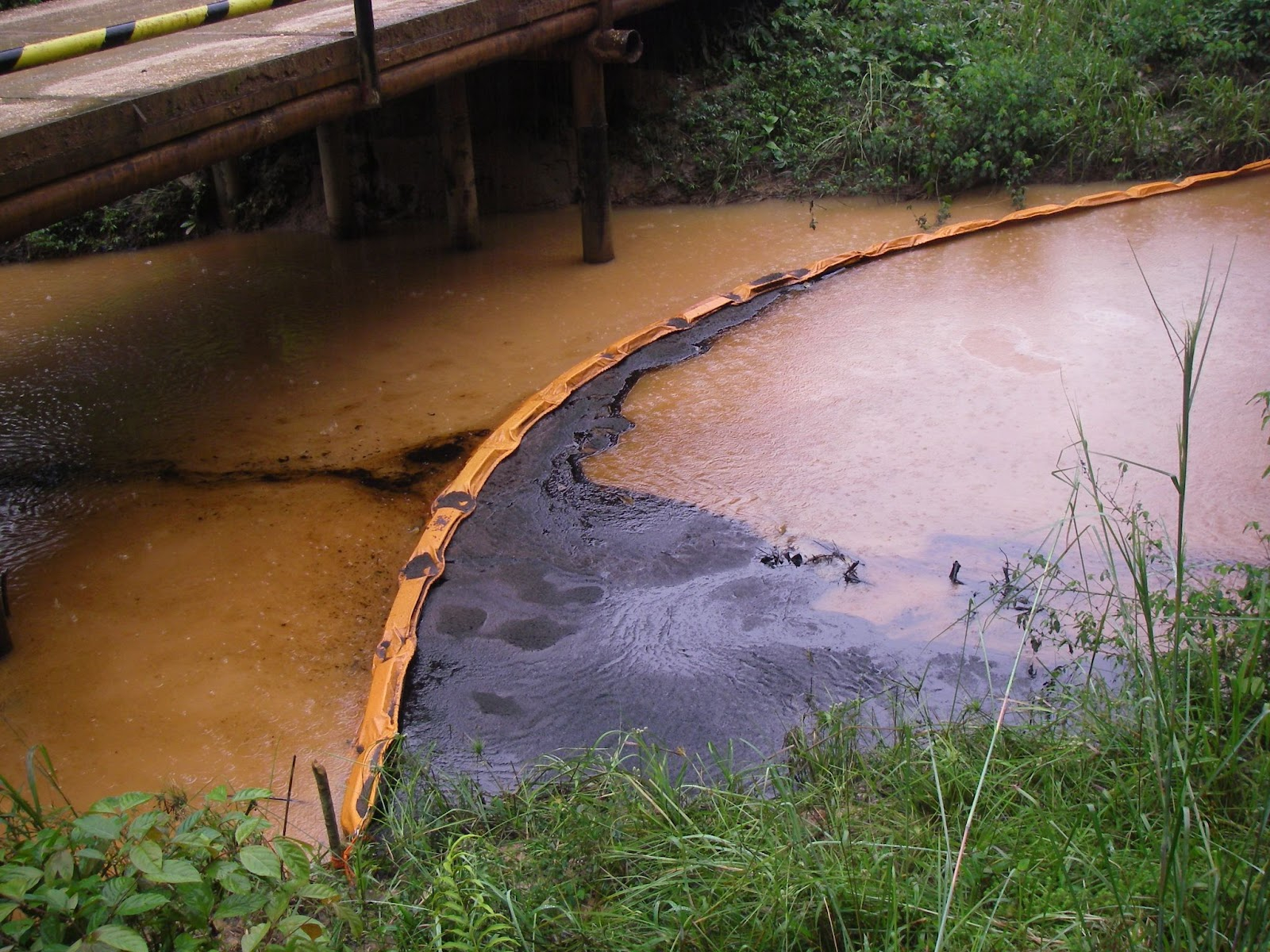
Impact on nature and environment
The oil and gas industry is a major driver of deforestation in the western Amazon, where companies often cut down trees in order to carve roads into the rainforest. Petroperú’s activities threaten biodiversity that is essential for maintaining healthy ecosystems, providing fresh water, pollination cycles, soil fertility, and food production. The loss of biodiversity, coupled with constant pollution and deforestation, directly affect Peruvian communities and Indigenous groups living in voluntary isolation.
In December 2024, an oil spill at the Talara Refinery caused widespread damage to endemic aquatic species, killing dolphins, crabs, seahorses and turtles, according to Perú’s Environmental Oversight Agency.
The Pastaza River complex, the largest wetland in the Peruvian Amazon, supports nearly 300 species of fish and birds, and sustains local Indigenous communities.. Its international importance has been recognized by Ramsar, the UN Convention on wetlands conservation. The North Peruvian Pipeline cuts through this sensitive area, posing a direct risk to its ecological integrity.
The Amazon is nearing a tipping point – if oil and gas extraction continues, it risks shifting into a savanna ecosystem. To prevent this, according to the report “Capitalizing on Collapse”, at least 75-80% of the Amazon must remain intact; as of 2023, only 74% remains.
Other impacts
Allegations of corruption
Petroperú’s high-level executives are politically appointed. This situation represents a risk for investors because Petroperú’s corporate governance and administration depend on the government in power. Allegations have often been made involving the misuse of resources and corporate relationships involving officials accused of or investigated for corruption.
In fact, Petroperú has a history of corruption scandals and crises due to the mismanagement by these high-level executives. The government of current Peruvian president Pedro Castillo has been no exception. Over the past months, Petroperú has entered into a crisis precipitated by a corruption scandal involving President Castillo, the President of the Board of Directors, and the Chief Executive Officer, which catalysed the departure of key high-level executive managers and the financial collapse of the company.
Financial risks
Petroperú’s mismanagement due to the poor selection of high-level executives has plunged the company into one of its worst financial moments. Petroperú is submerged in a financial hole caused by its over-indebtedness due to the modernization of the Talara Refinery coupled with very little crude oil production. Under the political appointees of President Castillo, Petroperú has shown very little financial transparency, leading to the downgrading of its credit rating by S&P and Fitch. Poor governance and little transparency represent a financial risk for investors.
In 2023, Petroperú failed to obtain a 500 million dollar loan guarantee from Italy’s export credit agency (SACE), partly due to intense scrutiny from Indigenous nations and strong backlash against Petroperú in Italy. In early 2024, despite the company’s track record of environmental, human rights and climate risks, the Peruvian Government decided to provide lines of credit and guarantees to Petroperú to keep the company afloat. Desperate to raise money to supply its refinery, import crude, and expand its oil production, Petroperú will turn to international financial markets in 2024.
In April 2024, an alliance of Indigenous leaders from Amazonian communities impacted by Petroperú, joined by representatives from northern Peruvian fishing communities, travelled to the US to urge international financial institutions to halt their support for the company. They highlighted the impacts of five decades of resistance to oil extraction and exposed the role of commercial banks in backing the fossil fuel industry.
Commercial banks finance Petroperú through corporate loans, project finance, and underwriting services. In 2018, European and U.S. banks helped finance Petroperú's Talara Refinery via a syndicated loan and bonds. Deutsche Bank acted as facility agent, with BBVA, BNP Paribas, Citi, HSBC, JP Morgan, and Santander as initial mandated lead arrangers.
Petroperú needs USD $2.2 million to continue operations. In November 2024, it announced that it plans to seek new financing from creditors in 2025.
More details on banks financing Petroperú can be found below.
Applicable norms and standards
Oil Debt: Financing Amazon Destruction
The 2024 Banking on Climate Chaos (BOCC) report is the most comprehensive analysis of the financial institutions backing the fossil fuel industry and the policies of the world’s 60 largest banks enabling this financing. The BOCC report release highlights frontline stories showcasing the disastrous impacts of this fossil fuel financing. As part of these stories, the new documentary called, Oil Debt: Financing Amazon Destruction, highlights the local and international efforts of the Achuar, Wampís, and Chapra nations from the Peruvian Amazon against state-run oil company Petroperú and its financiers. The documentary also highlights the alliance between Indigenous peoples and fishing communities, called the MarAmazonía alliance.
Oil Company Petroperú is a Big Business Risk!
Any investment in the oil company Petroperú represents an extreme financial risk based on Peru’s volatile political climate. Banks must stop oil operation investments or risk setbacks and stranded assets! The current political instability plus roadblocks on all its major projects is a big business risk.
2024
2024-03-25 00:00:00 | 2024
2024 List of Operations
Current operations
- Talara Refinery Modernization Project
- North Peruvian Pipeline
- Block 64 (License to operate)
- Block 192 (License to operate)
- Block I
- Block VI
Potential future operations
- Block 8 (Suspended)
- Blocks II, V, VII, X, XV,Z-2B (Blocks with expiration dates)
2022
2022-10-24 00:00:00 | 2022 List of Operations
2022 List of Operations
Current operations
- Talara Refinery Modernization Project
- North Peruvian Pipeline
- Block 64 (License to operate)
- Block 192 (License to operate)
- Block I (License to operate)
Potential future operations
- Block 8 (Suspended)
- Blocks II, V, VI_VII, X, XV,Z-2B (Blocks with expiration dates)
